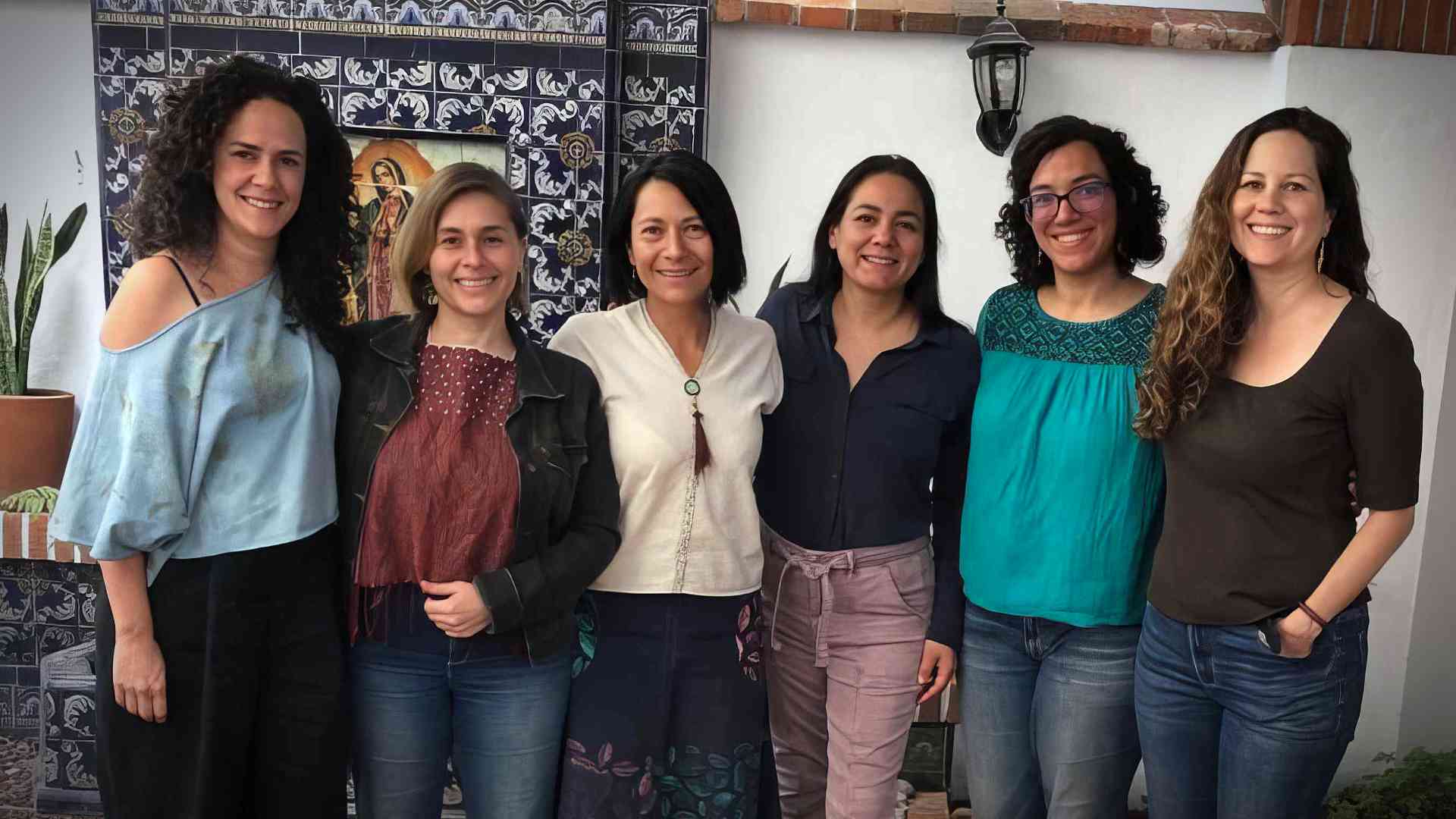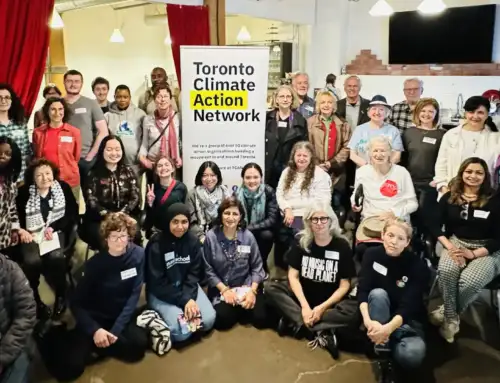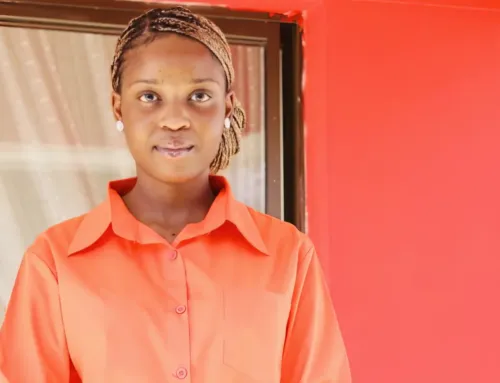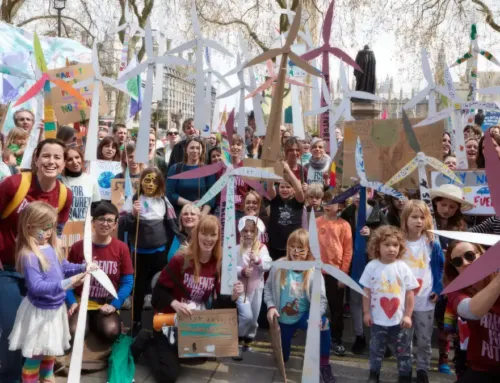STORIES
Astrid Puentes, México: Using our fierce mother power to pollinate climate justice every day – and everywhere
Astrid is a mother, lawyer, and gardener born in Bogotá, Colombia and now living in Mexico. She was co-executive director of the Interamerican Association for Environmental Defense (AIDA) from 2003 to 2021, using law to protect the environment and communities suffering from environmental harm, primarily in Latin America. Astrid co-founded Mamás y Papás por el Clima in Mexico, a network of mostly moms working collaboratively to address the climate crisis. She is a 2022-2023 Parent Climate Fellow and aims to grow the group to become a larger, more inclusive, and diverse movement of Mexican parents working together for climate justice.
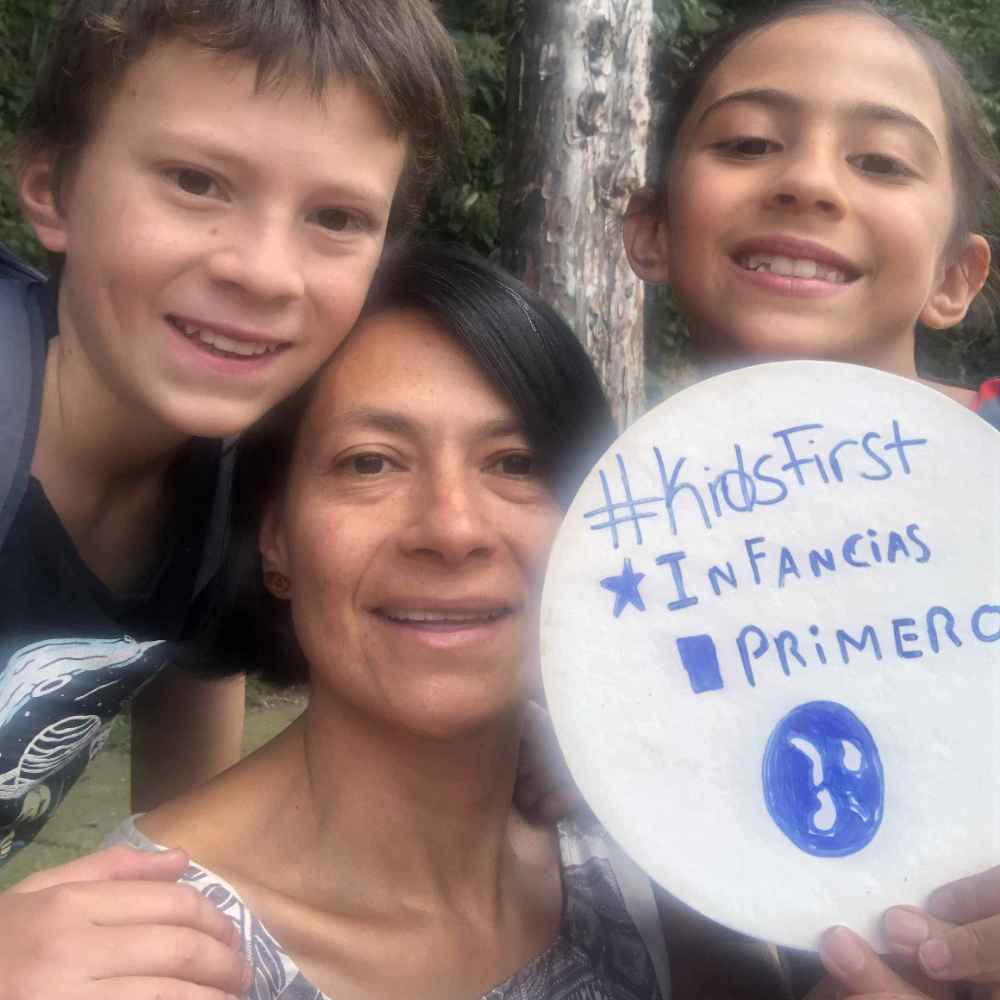
I come from a family in Colombia that farmed for generations. My parents were the first in their families to move to the city to attend university. In Bogotá, it wasn’t safe to roam alone as a child, but in nature I felt free. My happiest moments were hiking in the mountains or at my parents’ farm in Los Llanos Orientales, a beautiful savannah stretching from Colombia to Venezuela.
In law school, I was happy from day one. I’d found my place. At my first job with an NGO in 1997, I connected with global pioneers in public interest environmental law. I hadn’t even known that kind of law existed, but I fell in love and have done it ever since. Working with the Interamerican Association for Environmental Defense (AIDA) from Mexico has allowed me to serve the interests of my Latin American region.
By 2004, I saw climate impacting everything — our lives, health, future, and dignity. I started linking environmental law with human rights, putting a human face to the climate crisis. The law is critical for climate justice because it gives nations and businesses a framework of shared principles and obligations. Law’s highest objective is justice, but we’re not seeing that yet in the climate crisis. We need to reinvent the world and that means reinventing law.
Becoming a mother in 2011 made the climate crisis more personal for me. I saw that solutions weren’t coming from the global meetings I attended. For years, I and others tried to get the Inter-American Commission on Human Rights to address climate. During preparations for Paris talks, there were meetings about incorporating human rights into the agreement but no statements forthcoming from commissioners. Finally, out of desperation, I emailed them, saying, “My colleague and I are writing not as AIDA attorneys, but as mothers. You must say something about human rights in this agreement.” We included our children’s names. Within three days, they sent us a draft press release. I was like, Really? After years of asking, it took only mentioning our kids? I experienced the power we mothers have, the power we must use.
In 2018, I read the IPCC 1.5 report on October 8th, the day after my son’s seventh birthday. Reading about the terrible harms to come, I realized that in 2030 he’d be 19, a young adult without the opportunity to alter outcomes. I thought, “My career will have been useless if I can’t help my kids and others.” I decided that all my work going forward would relate to climate justice.
In 2019, we started a group that’s now about 60 moms. The idea is that we mothers are vital, yet our voices aren’t considered in climate policymaking. Our group focuses on educating ourselves, building community, and sharing information and calls to action. We support each other, connect in nature, and motivate each other for lifestyle changes such as biking more and installing composting toilets and solar panels. We share both our pain as mothers in the climate crisis and our unique, fierce power to inspire solutions. After the latest IPCC report, we cried because of our kids. We often share our anxiety and leave more inspired.
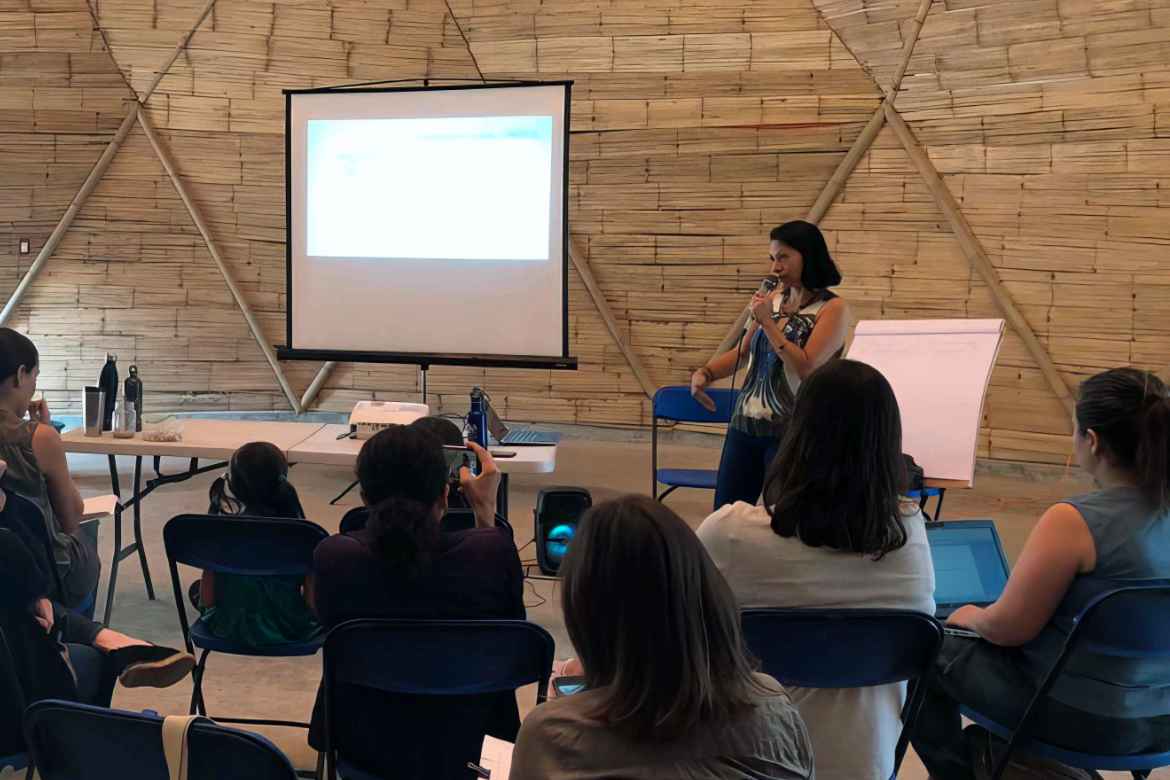
Air quality is a priority now in our efforts. Living in Mexico City is a daily reminder of the pollution crisis, but most people are unaware of its connection to climate and fossil fuels. We hope to install air quality monitors, promote transition from fuels to renewables and advance clean air campaigns. Internationally, polar bears often symbolize the climate crisis. Our polar bear is air quality. Our polar bear is water. It’s about us, people.
Mothers must be in front. We have power to unleash, especially here in Mexico with its reverence for Mother Mary. Yet in many ways we mothers are invisible in society. The solution for climate must be from a feminist perspective that includes love, kindness, and connection with nature, but also the fierceness of tiger mothers defending their cubs. Moms have accomplished powerful things in global conflicts such as wars. In Colombia, guerrillas and paramilitaries have kidnapped boys to recruit, and I remember hearing in the ‘90s about a group that kidnapped 50 indigenous boys. Their mothers became desperate. The army wouldn’t help, so the mothers hiked all the way to the guerrilla compound and demanded their sons. The guerillas handed them over to their mothers.
Our mother’s group is planning more collaboration with Fridays for Future and other youth groups. Working across generations unites families around inspiring actions and helps teenagers feel more understood by their parents. Many feel anxious about their futures because they want climate action, but their parents are completely disconnected. It’s all backwards. Adults in their 40s, 50s or 60s act like irresponsible teenagers while their children, who should be carefree, are fighting for a safe climate. The fact that 15-year-olds must save the world is troublesome for me and other moms. We’re trying to inspire action through schools, which are natural places for us to connect.
We also supported the UN General Assembly’s request to the International Court of Justice (ICJ) in The Hague, the world’s highest court, to articulate states’ obligations regarding climate change and future generations. For parents that’s key: The ICJ will decide whether to compel states to advance solutions we’re not seeing today, but that are critical for our children. The ICJ will also decide on states’ obligations around communities in particular situations of vulnerability and that also means special measures to protect kids today and in the future. Young law students in the tiny, powerful island nation of Vanuatu initiated this process by petitioning their government to request an ICJ advisory opinion. Those leaders listened, and now it’s a global movement demonstrating the power of intergenerational collaboration.
We need the ICJ to make decisions for the new world. It won’t be binding, but it will be the law. That matters, because we must balance global power and get facts straight, and that’s not happening in the climate crisis because of corporate capture of global negotiations. If we have decisions recognized by the international court, we’ll put them into practice in our countries.
That decision, though necessary, won’t solve everything. We must use every tool that’s peaceful– finance, communications, arts, poetry, litigation, lifestyle changes, going to The Hague. Change isn’t top down. It’s not “our bees are pollinating, so we don’t need yours.” We need everything, everywhere. That’s how the world and nature work. We must pollinate climate justice every day and everywhere.

